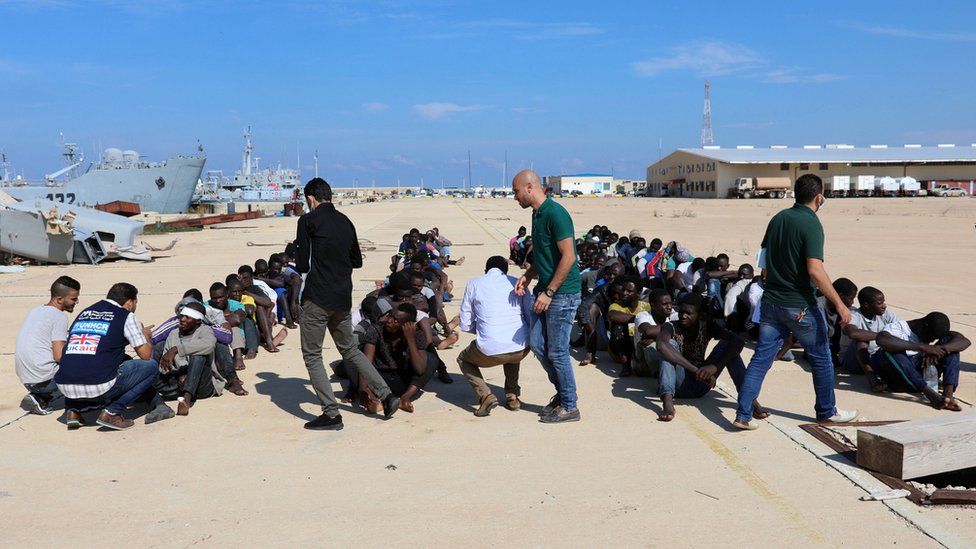

Unfortunately the Red Cross have not told us how the prisoners are being treated. On issues like this, the ICRC gives priority to bilateral and confidential dialogue with the parties. Violations of this prohibition by any party involved in the conflict are grave breaches of international humanitarian law which, once established, must be punished. We will not cease to point out that international humanitarian law prohibits at any time, and in any place whatsoever, violence to the life and person of anyone no longer taking an active part in hostilities. There have recently been numerous allegations of summary executions in places where fighting has taken place, particularly in Sirte. These rules concerning respect for persons deprived of their freedom and for mortal remains also apply in connection with their display to the general public via the media.


International humanitarian law also contains rules concerning respect for the dead, such as the obligation to search for, collect and evacuate the dead without adverse distinction, to prevent the dead from being despoiled or mutilated, and to bury the dead with respect. They must treat them humanely, without any adverse distinction. In each individual case, the parties concerned must refrain from subjecting persons in their power to treatment incompatible with respect for their honour and dignity – in particular, to humiliating and degrading treatment.

Our view of these issues is based on the applicable rules of international humanitarian law, for which we endeavour to ensure respect. Over the past few days, people with their hands tied have been put on display on vehicles, interrogations of detainees have been filmed by local media, and mortal remains have been exposed to public curiosity… The public display of detainees and of mortal remains has triggered a great deal of reaction and debate in recent days. It will therefore also be necessary to raise people’s awareness of the danger posed by these explosive remnants of war. Unexploded munitions in those cities constitute a danger and a further obstacle to the return of the people who fled. In cooperation with Libyan Red Crescent volunteers, we will be pressing ahead in the coming days with the delivery of aid to tens of thousands of people displaced from Sirte and Bani Walid. In the light of information obtained in Sirte, we are also going to intensify our dialogue with the authorities concerned on the conduct of recent hostilities and on compliance with other rules of international humanitarian law. The ICRC provided them with advice in order to facilitate the process of having the deceased identified by members of their families. The staff of the National Commission for the Missing, a doctor from Ibn Sina Hospital and civilian volunteers are currently involved in the retrieval and temporary burial of unidentified bodies. The city is almost deserted only a small number of families are starting to return.Īt least 200 corpses have so far been found in Sirte. The fighting was extremely fierce, as can be seen by the large-scale destruction. International Committee of the Red Cross (ICRC) delegates have returned to Sirte several times over the past few days. That being said, in order to be able to check on the treatment they are receiving and on the conditions in which they are being held, the visits will have to take place without delay. So we have reason to be optimistic about obtaining access to people recently arrested. In the framework of a constructive dialogue with the transitional authorities, we have visited 6,000 detainees in Tripoli, Misrata and other cities nearby over the past two months. Obtaining access to people newly detained, in particular those captured following the recent fighting in Sirte and Bani Walid, is a priority. What will the ICRC’s priorities be in the coming days?
COST OF A BIG MAC IN LIBYA UPDATE
Libya: detainees and the dead must be respected October 27 2011įollowing the recent fighting, particularly in Sirte, Georges Comninos, who heads the ICRC delegation in Libya, gives an update on the immediate humanitarian priorities and on problems that have recently been the subject of debate, in particular the public display of detainees and the dead. As of today there are at least 7,000 prisoners held by the NTC/Rebels at this point in time probably more. At least 30,000 people were killed and 50,000 wounded in Libya’s six-month NATO war. The number of actual Airstrikes is much higher, as the bombing continued up until October 2011. NovemAs of June 2011 NATO had exacted 26,000 sorties and nearly 10,000 airstrikes.


 0 kommentar(er)
0 kommentar(er)
